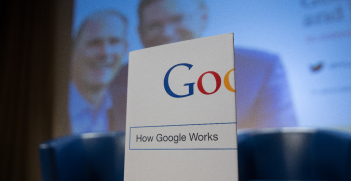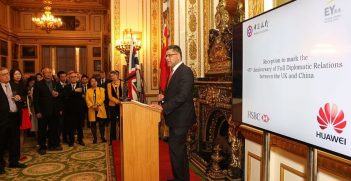Huawei, the Foreign Adversary?

The Google-Huawei dispute over the Android operating system has done irrevocable damage to the reputation of the US tech sector. It’s easy to wonder how we got here, so let’s trace back over the past month.
On May 15, the US moved to counteract foreign adversaries creating and exploiting vulnerabilities in information communications technology and services through Executive Order 13873. This is a mechanism for prohibiting dealings with entities on national security grounds, or to put it in other words, an arbitrary instrument for erecting non-tariff barriers.
Later that same day, the Commerce Department placed Huawei on a list of organisations deemed to be a risk to US national security. Importantly, the listing of Huawei triggered a number of provisions in the earlier announced Executive Order.
On May 20, Google announced that it would no longer provide updates of the Android operating system to Huawei and would take away Huawei’s license to the Google Play app store, Google-owned apps, and Android security updates. The Android operating system powers about 45 percent of smartphone devices in the US, but it underpins 75 percent of smartphones in China.
The Department of Commerce has since issued a 90-day exemption to ensure critical support can be provided to Americans who rely on Huawei equipment. Secretary of Commerce Ross Wilbur says this is so that “operators [have] time to make other arrangements and [gives] the Department space to determine the appropriate long-term measures for Americans and foreign telecommunications providers that currently rely on Huawei equipment for critical services.”
The Executive Order has not only hit Google-Huawei relations, it’s impacted on component manufacturers Qualcomm, Intel, and Broadcom. Huawei also licenses Microsoft software for its range of computers. Many of these companies are worried Trump will simply change his mind as part of a trade deal, measures were imposed on ZTE in 2018. A phone call between President Xi and President Trump is credited with the rolling back of the ZTE restrictions.
Much has been said about Huawei being of national security concern and officials within the US government are as worried Trump will reverse the national security ban as US companies are hopeful he’ll overturn it.
However, from China’s point of view, companies like Verizon and AT&T, Google, Facebook, Apple and Microsoft are all of obvious national security concern. This means the disagreement could degenerate very quickly with a tit-for-tat listing of different companies on national security watch lists for entirely arbitrary reasons.
Huawei has been working on a backup operating system for its devices, reportedly since 2012, the platform is named “HongMeng”. Regardless of how the current dispute is resolved, Huawei will likely commence a rollout of this operating system soon. Chinese consumers and netizens will now understand and support such a transition.
This has implications for the security and intelligence establishment. The Android operating system has been in the public domain for a long time, long enough for its vulnerabilities to be well characterised and exploited by intelligence agencies. If 75 percent of Chinese smartphone users transition to a Chinese developed and supported operating system, this will have flow on effects for the collection of intelligence from those devices by non-Chinese nations. On balance, this is something the US may have weighed up before listing Huawei as a national security concern, but maybe they didn’t.
Though it may impose short term pain on Huawei and China, it ultimately makes their transition to a domestically developed and supported smartphone operating system easier to articulate to the Chinese consumer. This has upstream security and intelligence benefits for the Chinese government.
The ongoing politicisation of national security as part of Trump’s “art of the deal” approach to international negotiations also has implications for Australia. Australia has a “Defence and Strategic Goods” list and a raft of “Defence Export Controls.” There is the very real risk the US will ask Australia to add items to this list, or request that Australia blacklist particular organisations, in such a way that politicises the function of these mechanisms.
National security is a watch-word in international trade due to exemptions in World Trade Organisation (WTO) rules that allow countries to impose trade barriers based on national security concerns. Only on April 26 of this year did the WTO make its first formal ruling clarifying the use of national security exemptions. That case was between Russia and Ukraine, coming down in favour of Russia. Ukraine choose not to appeal the decision, saying “the decision confirms that a Dispute Settlement Body panel has jurisdiction to decide over such cases and scrutinize invocations of the security clause.”
Yet the WTO is facing its own crisis due to US-China relations, with the US blocking appointment of judges to the Appellate Body. The body is down from seven judges to three, with the US refusing to support new appointments. Two of the remaining three judges have their terms ending in December this year. If the US does not support new appointments, the WTO may be paralysed and unable to adopt decisions.
All of this points to the ongoing politicisation of trade and national security. Calls for the liberal rules-based international order to be respected and upheld have two targets, the US and China. In a global environment that forecasts deteriorating economic circumstances, this is rather important.
There are now news reports emerging that the US is about to target the drone market with its national security directives, with the two largest drone manufacturers being Chinese.
This is a space to keep an eye on as geopolitical lines carve up the traditionally borderless space of international trade.
Thom Dixon is vice president of the Australian Institute of International Affairs NSW and research fellow with Remi AI.





